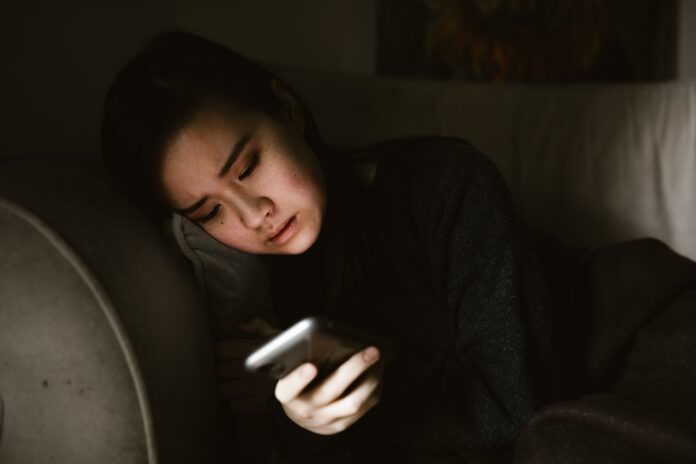October is Domestic Violence Awareness Month. Red Stick Mom has partnered with the Louisiana Coalition Against Domestic Violence to help bring awareness to this important topic. Resources for getting help or reporting domestic violence can be found at the bottom of this page.
“Why didn’t she just leave?”
The first question most people have when reading about the aftermath of domestic violence is, “Why didn’t she just leave?” I speak to this as someone who spent most of her life pondering (or rather, dismissing) domestic violence in the same way. After speaking with many victims, counselors, professionals, lawyers, and law enforcement officials, the below list is a summary to begin the conversation as to why “just leaving” is not that simple.
-
Myth: Law enforcement will magically make abuse stop once it is reported.
Most domestic violence calls do not end with the abuser being handcuffed and left in jail for lengthy stay while the victim gets her life back. There are many ways an abusive episode does not end in even an arrest, much less an actual conviction.
See here: Jacqueline Franchetti says she did what she was supposed to do. So why did her daughter die?
Though more and more agencies are developing more detailed domestic violence policies, we’ve all heard of or seen stories on tv of police arriving and simply telling the abuser to take a walk or stay somewhere else for the night.
This can be seen in the recent body cam footage related to the Gabby Petito case. In responding to the situation where clearly something happened and emotions were at a dangerous level, the officers asked the couple to spend the night apart and let the situation be.
-
The abuser can get custody
Many custody cases are decided under a notion that a parent can be considered a physical danger to the other parent, but not to the kids.
“If children are involved, the abuser often is able to get at least joint custody of the children. Many victims never report for fear of losing their children or putting their children in an unsafe position with the abuser,” explains Mariah Wineski, Executive Director of the Louisiana Coalition Against Domestic Violence.
-
Often, both people are arrested, not just the abuser
Victims are often arrested with the abuser, particularly when using force to defend themselves.
The abuser can make similar allegations as the victim, while remaining far more composed than the victim that just experienced a traumatic event. Abusers frequently use this as a threat, especially when there are kids involved because the victim will immediately be more concerned about what will happen to their children if both parents were arrested.
The U.S. Department of Justice is working on this:
“United States law enforcement agencies are typically paramilitary and patriarchal in organization and predominantly staffed by male officers. Given that victims of domestic violence are overwhelmingly female, it is not hard to understand that male officers may often have little understanding of domestic violence from a victim’s perspective.
… many well-intentioned officers are simply not trained properly concerning domestic violence in general.”
- When law enforcement gets involved, everything becomes public
For all of the above reasons, victims do not necessarily want the abuser arrested, they just want the abuse to stop. When law enforcement gets involved, the victim’s private life becomes very public. The shame victims experience when domestic violence becomes public is largely attributed to the popular question, “Why didn’t she just leave?”
Similar to sexual abuse, the burden is on the victim to leave dignity at the door, and face the legal system and people constantly wondering whether the victim is even telling the truth.
-
Lack of support
A local counselor explained to me that domestic abuse victims are mentally on an island away from everyone else. Abusers are skilled at separating the victim from their friends and family long before the abuse starts.
By the time abuse begins, victims already feel isolated from their support system. They fear the “I told you so” from friends and family on top of the shame they are already experiencing. It’s difficult for victims to feel that anyone actually understands or could have empathy for what they are going through without speaking to someone who truly understands domestic abuse. This is why it is so important to get victims connected to resources similar to those located at the bottom of this page.
-
Fear of law enforcement
Victims that have negative life experiences with law enforcement do not see law enforcement as their way out. How victims were raised to view law enforcement can also play a large role in this feeling.
-
Financial consequences
Abusers often also control other aspect of victims’ lives, such as finances. Especially when children are involved, victims fear the financial consequences of losing access to basic needs for themselves and their children if their abusers get arrested.
Louisiana Coalition Against Domestic Violence has a statewide domestic violence hotline (1-888-411-1333) that connects survivors to an advocate in their community. It’s a great way to get connected to safety planning, protection orders, emergency shelter, support groups, and many more resources.
There are 16 domestic violence programs across the state who can offer assistance to survivors for various needs: https://lcadv.org/programs-resources/#

















